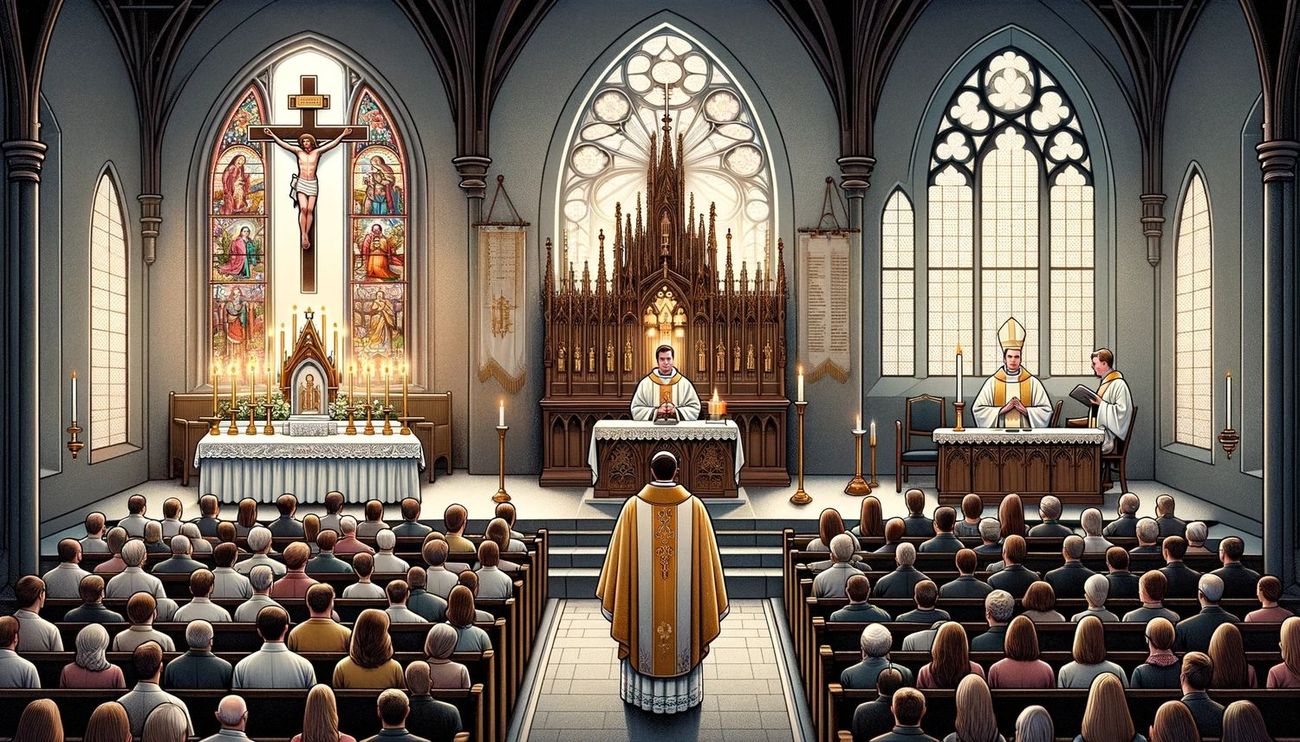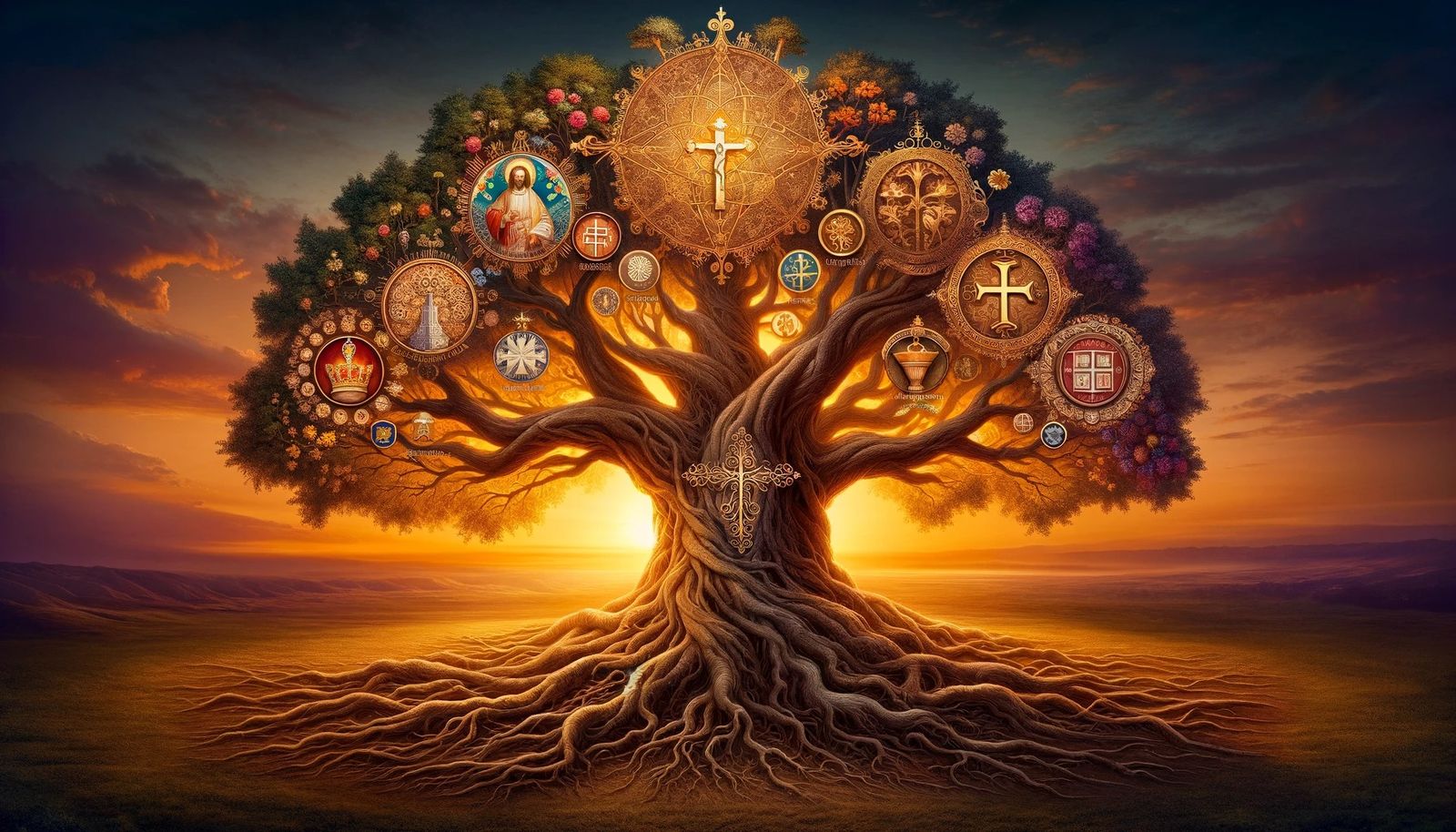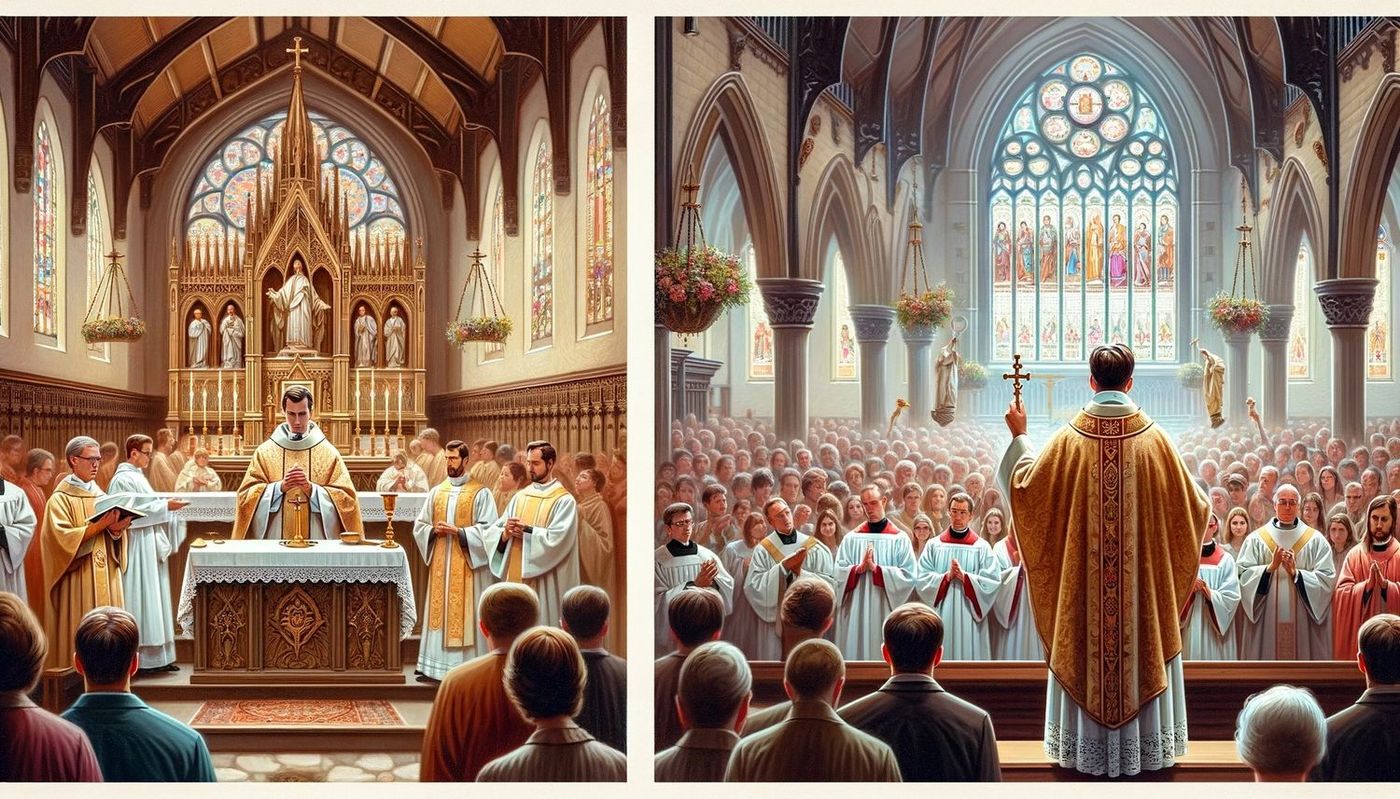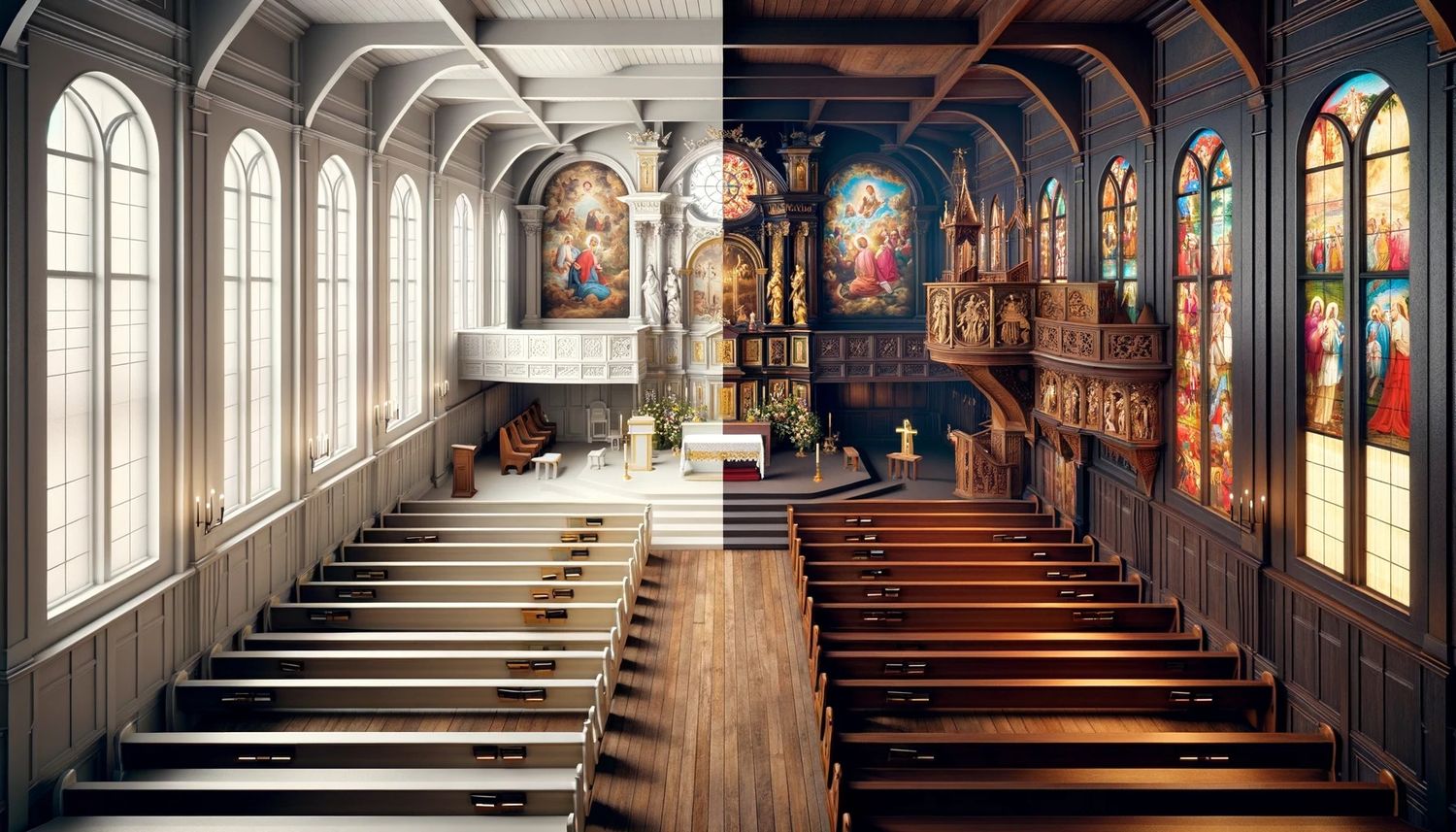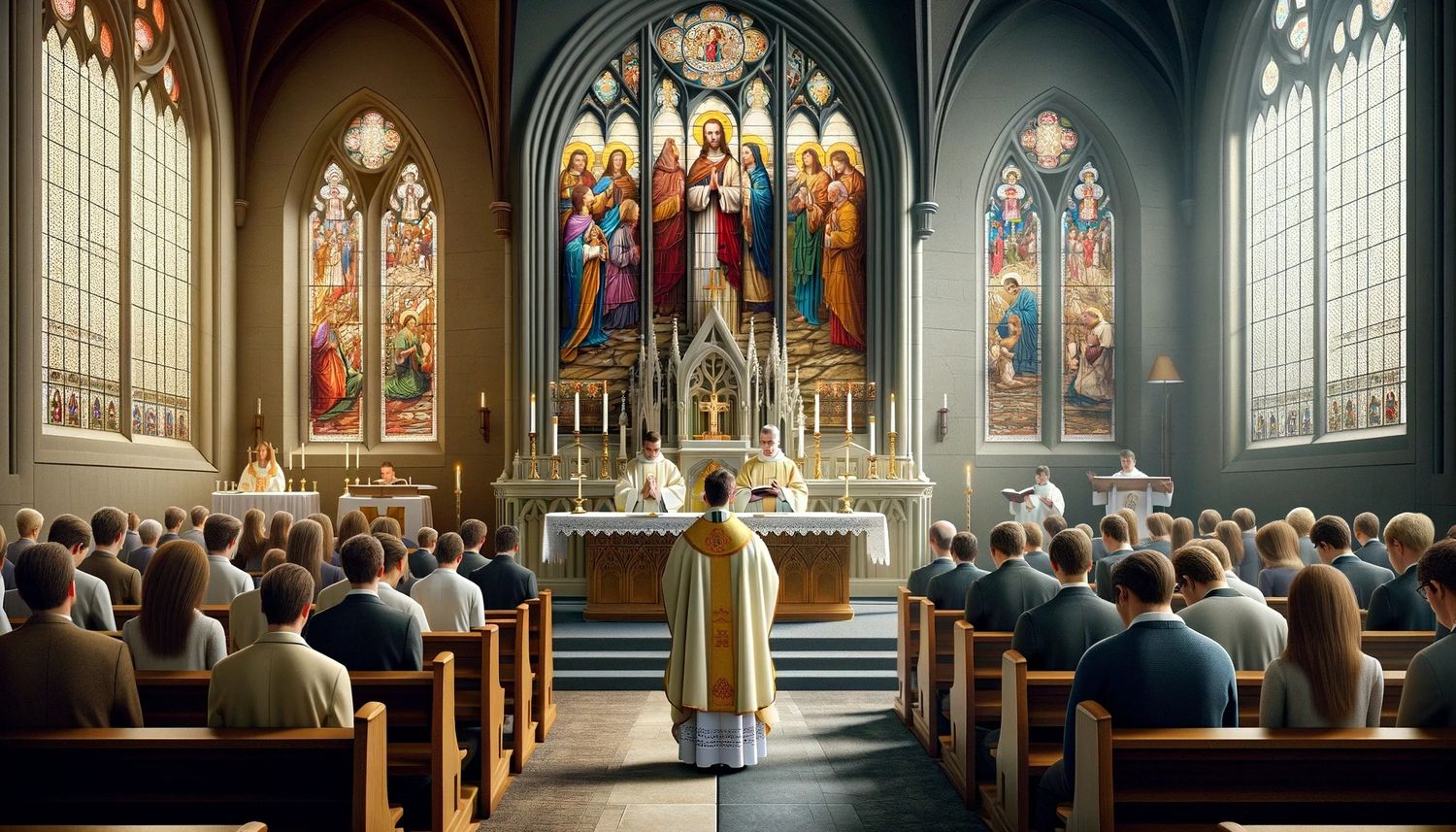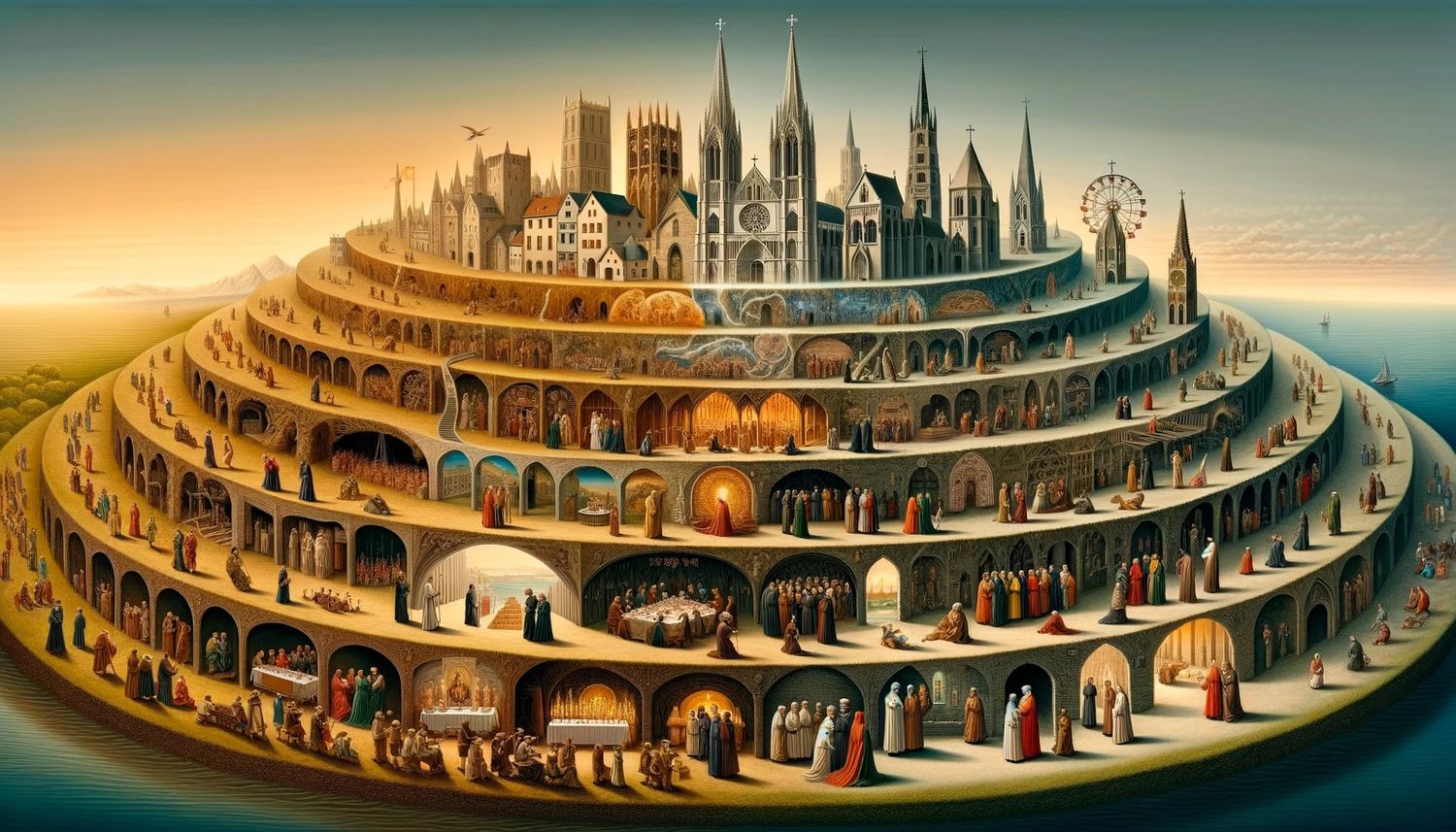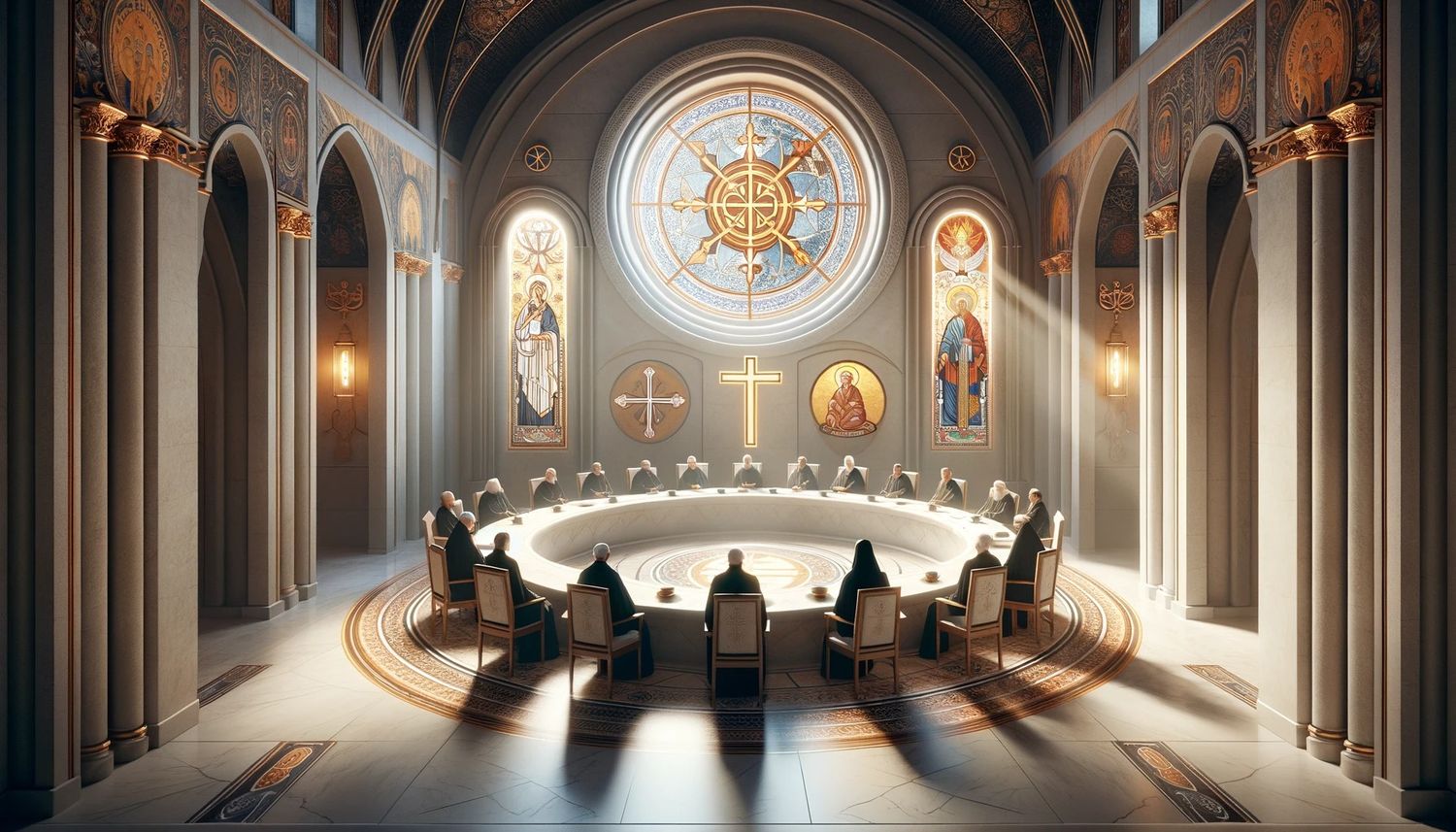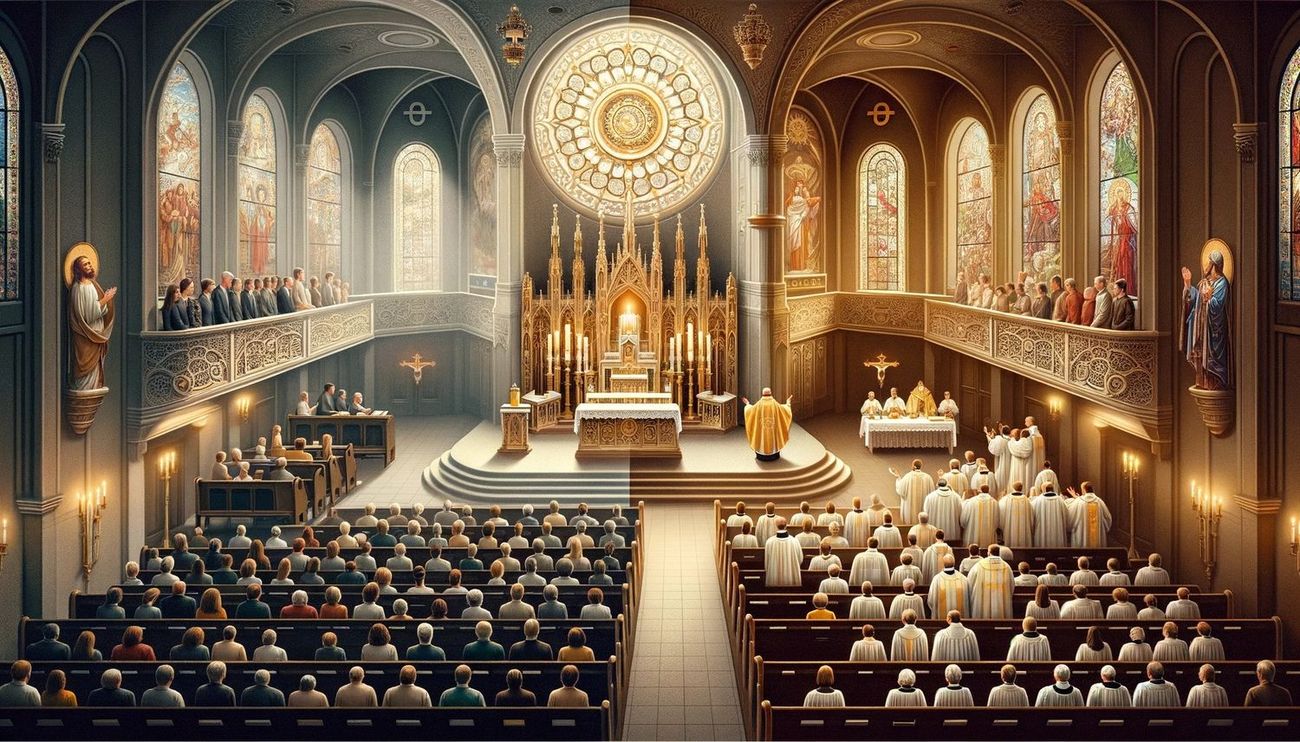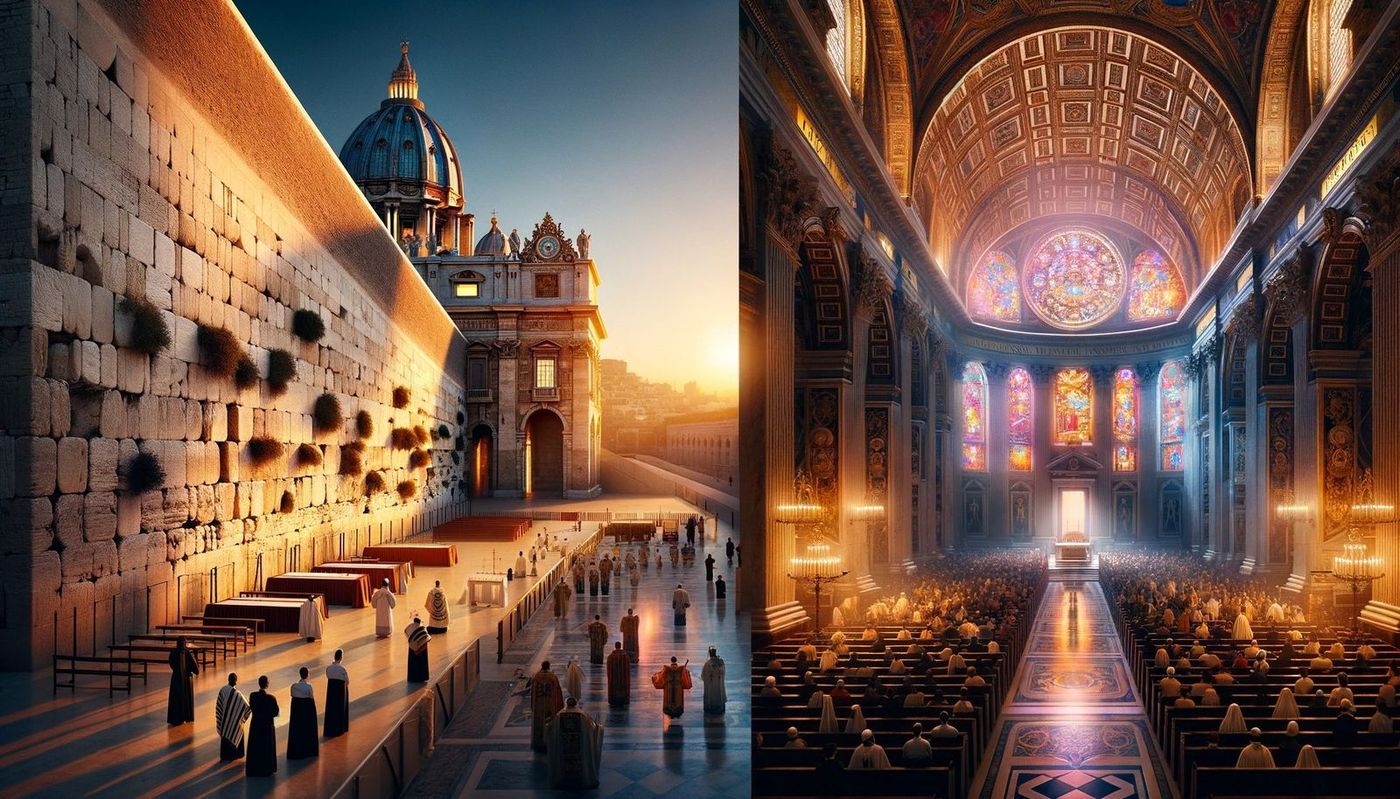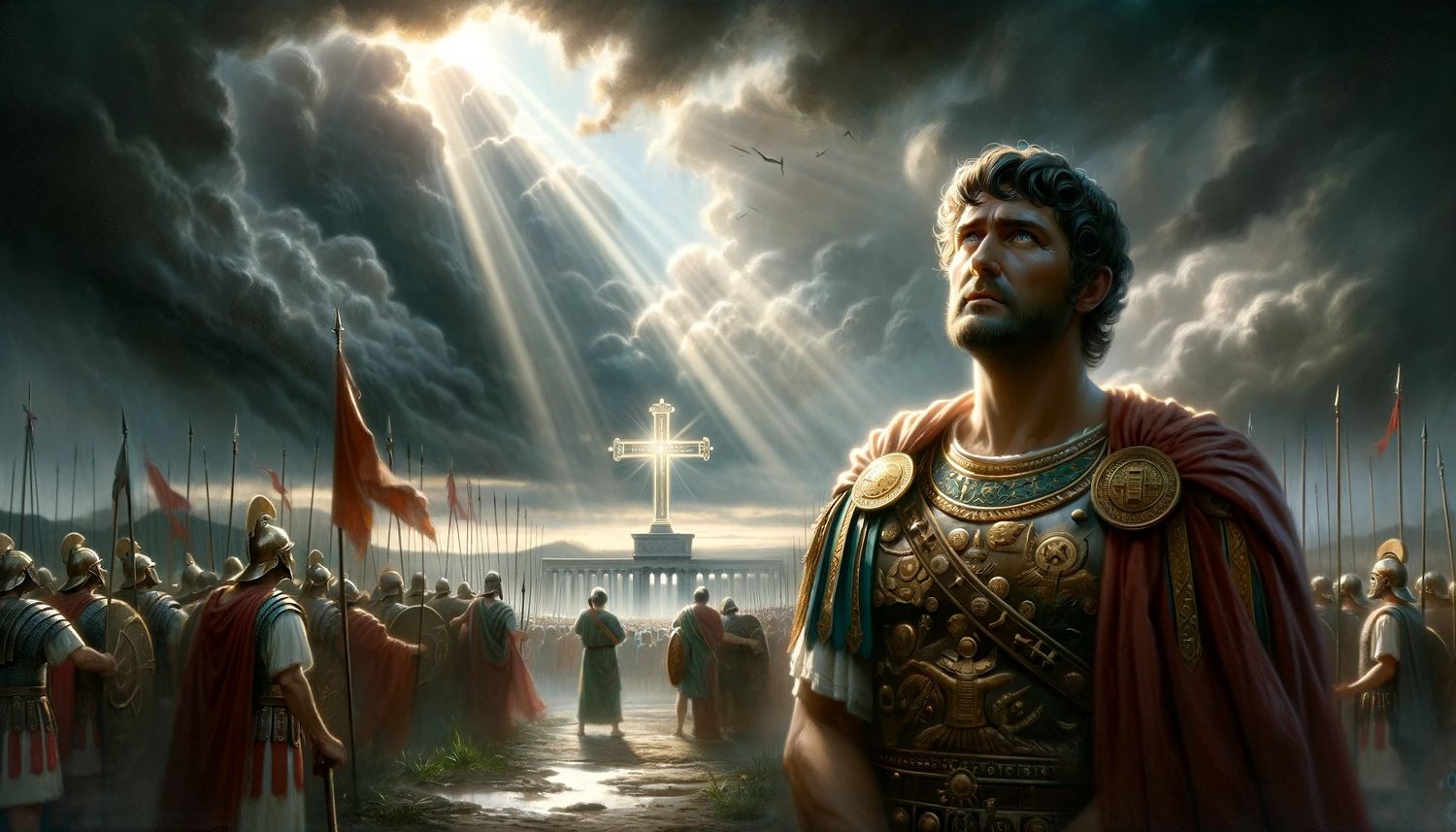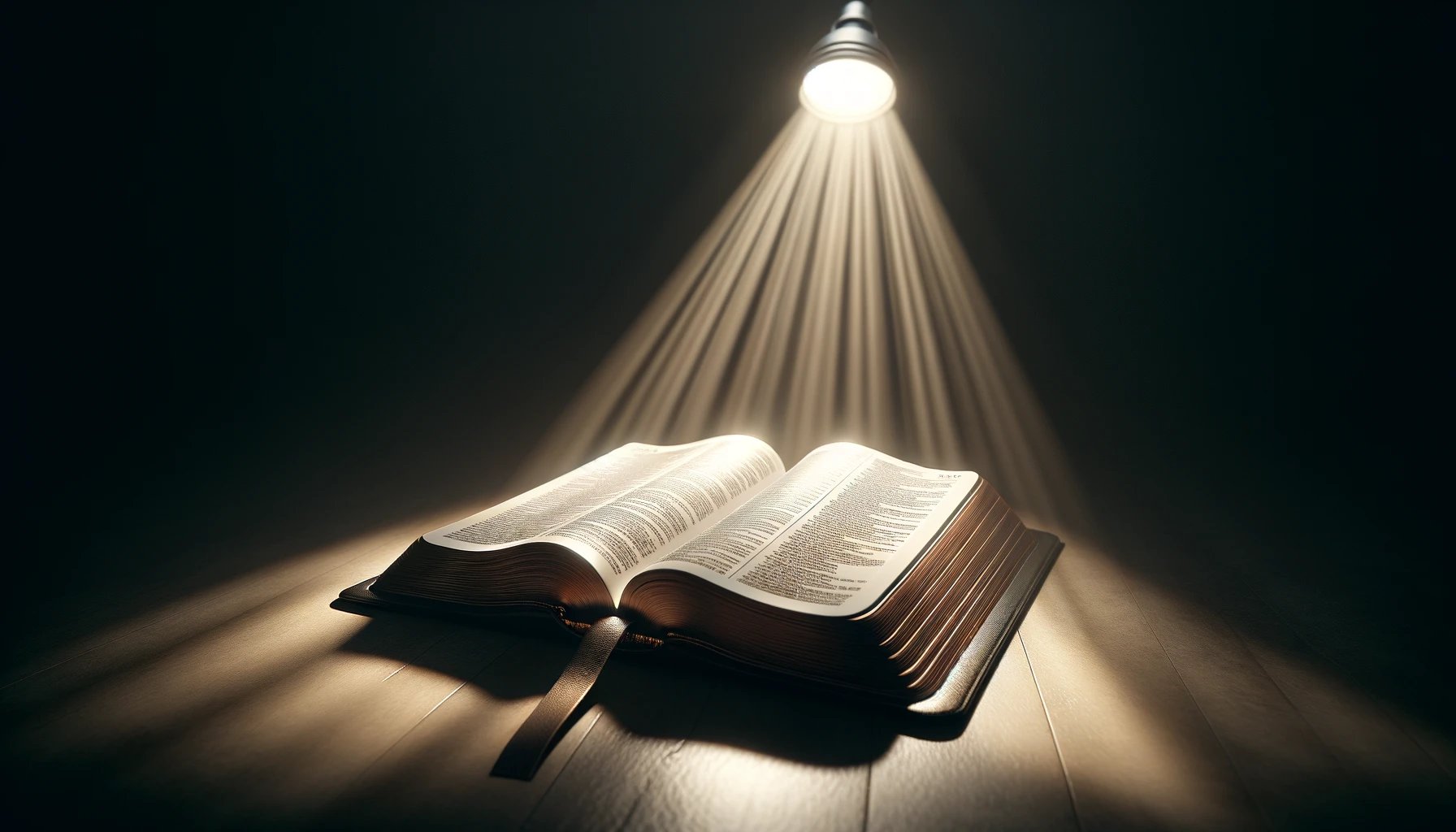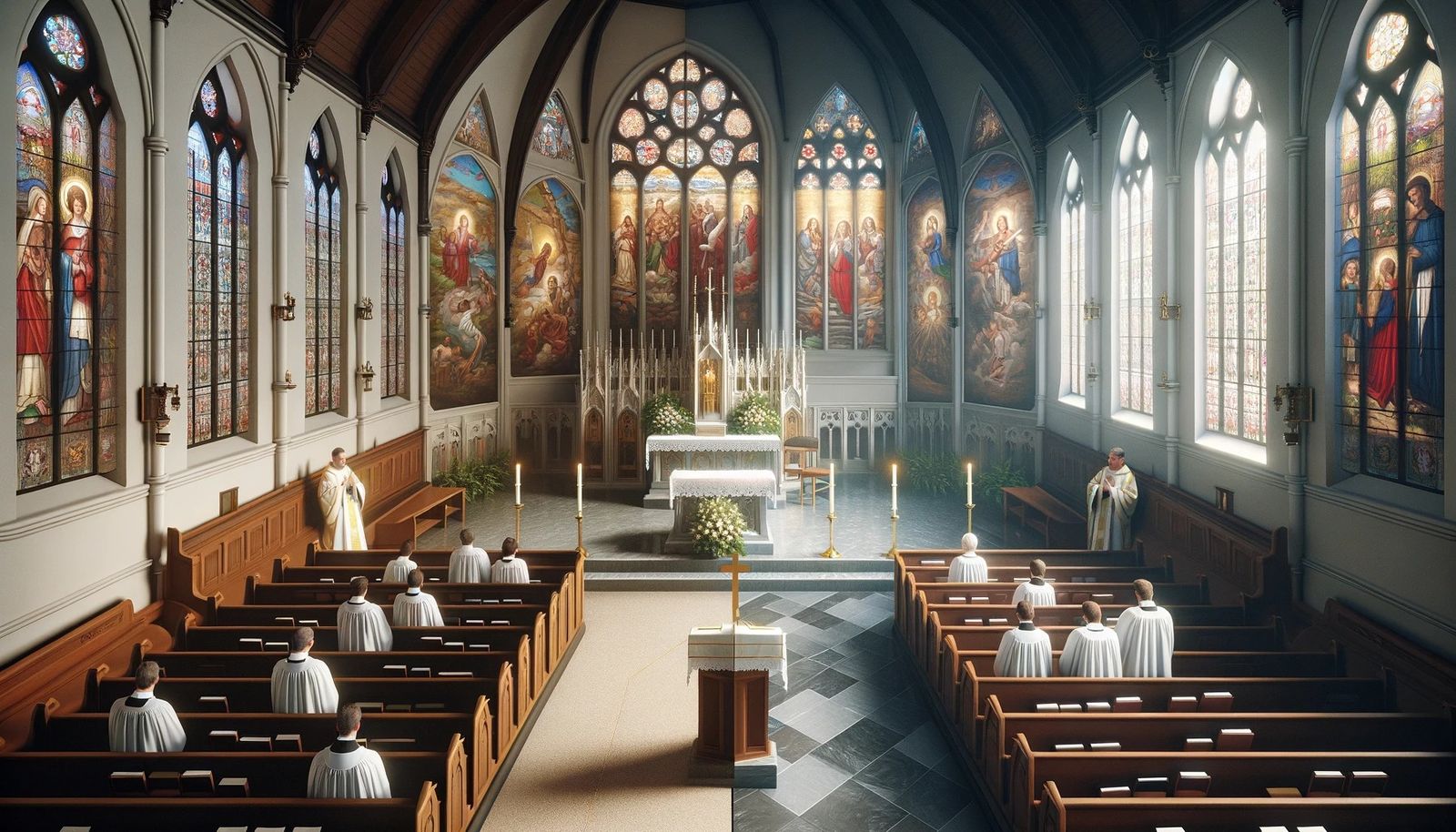Home>Theology and Spirituality>What Makes Catholicism Different From Other Religions
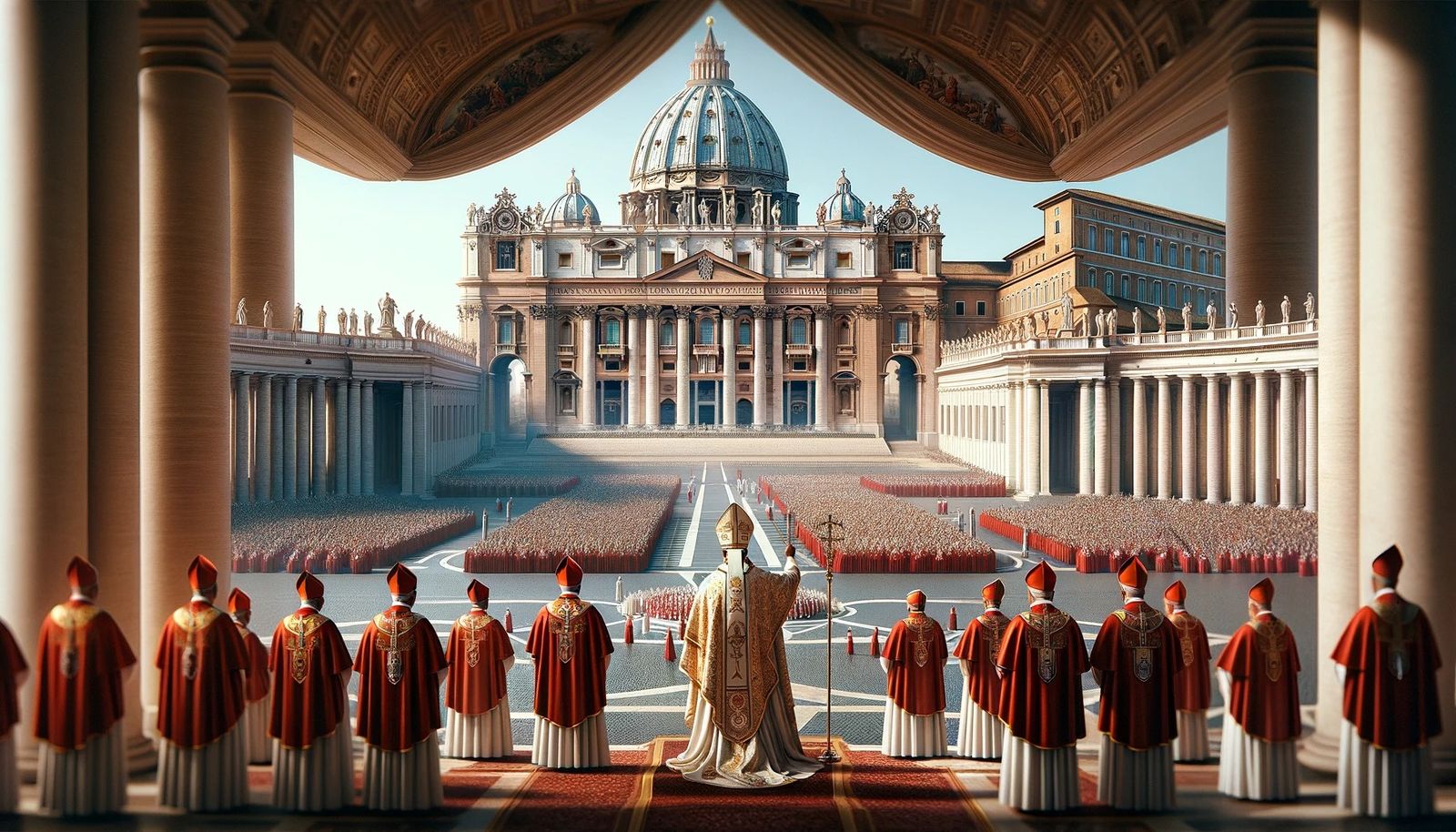

Theology and Spirituality
What Makes Catholicism Different From Other Religions
Published: February 15, 2024
Peter Smith, Editorial Director at Christian.net, combines deep insights into faith, politics, and culture to lead content creation that resonates widely. Awarded for his contributions to religious discourse, he previously headed a major organization for religious communicators, enhancing dialogue on faith's societal impacts.
Discover the unique aspects of Catholicism and its differences from other religions in terms of theology and spirituality. Explore the distinct beliefs and practices that set Catholicism apart.
(Many of the links in this article redirect to a specific reviewed product. Your purchase of these products through affiliate links helps to generate commission for Christian.net, at no extra cost. Learn more)
Table of Contents
Introduction
Catholicism, with its rich history and deep-rooted traditions, stands as one of the oldest and most influential branches of Christianity. Its distinct beliefs, practices, and organizational structure set it apart from other religions and Christian denominations. Understanding what makes Catholicism unique can provide valuable insights into its profound impact on the lives of its followers and the broader religious landscape.
The Catholic Church, also known as the Roman Catholic Church, traces its origins back to the teachings of Jesus Christ and the apostles. With a global following of over a billion people, Catholicism holds a prominent place in the realm of spirituality and faith. Its influence extends across diverse cultures and societies, shaping the moral and ethical frameworks of countless individuals.
As we delve into the distinct characteristics of Catholicism, we will explore its core beliefs and practices, the role of the Pope as the spiritual leader, the significance of sacraments, the interplay between tradition and scripture, as well as its perspectives on salvation and the afterlife. Through this exploration, we aim to gain a deeper understanding of the profound impact and enduring relevance of Catholicism in the modern world.
The journey into the heart of Catholicism unveils a tapestry of spiritual devotion, communal worship, and a profound sense of history and continuity. It is within this intricate tapestry that we discover the unique elements that distinguish Catholicism from other religious traditions, inviting us to appreciate its complexities and enduring significance.
Beliefs and Practices
At the core of Catholicism lies a set of fundamental beliefs and practices that shape the spiritual lives of its adherents. These beliefs are rooted in the teachings of Jesus Christ and are upheld through centuries-old traditions. Central to Catholic faith is the belief in the Holy Trinity, comprising God the Father, Jesus Christ the Son, and the Holy Spirit. This foundational doctrine underscores the divine nature of God and the interconnectedness of the three persons within the Godhead.
The veneration of Mary, the mother of Jesus, holds a significant place in Catholic devotion. Catholics believe in Mary's immaculate conception and her role as the Mother of God, emphasizing her intercessory power and her presence as a source of comfort and guidance. The veneration of saints, who are viewed as exemplary models of Christian living, is also a prominent aspect of Catholic practice.
The sacraments, regarded as sacred rituals instituted by Christ, form an integral part of Catholic life. These include baptism, confirmation, the Eucharist, reconciliation, anointing of the sick, holy orders, and matrimony. Each sacrament holds profound spiritual significance, marking key milestones in the life of a Catholic and fostering a deeper connection to God and the community.
The Mass, or Eucharistic celebration, stands as the central act of worship for Catholics. It commemorates the Last Supper, where Jesus instituted the Eucharist, emphasizing the real presence of Christ in the consecrated bread and wine. The liturgical calendar, with its cycle of feasts, seasons, and solemnities, provides a structured framework for communal worship and spiritual reflection.
Catholic moral teachings encompass a wide range of ethical principles, addressing issues such as social justice, human rights, and the sanctity of life. The Church's stance on social issues, including poverty, inequality, and the environment, reflects its commitment to promoting compassion, solidarity, and the common good.
The rich tapestry of Catholic beliefs and practices reflects a deep reverence for tradition, ritual, and spiritual contemplation. These elements not only define the religious identity of Catholics but also serve as a source of spiritual nourishment and communal unity, fostering a profound sense of belonging and purpose within the faith community.
The Role of the Pope
At the heart of Catholicism stands the figure of the Pope, who serves as the spiritual leader and the visible head of the Catholic Church. The Pope, also known as the Bishop of Rome, traces his authority back to St. Peter, one of the apostles chosen by Jesus Christ. According to Catholic tradition, Peter was appointed by Jesus as the rock upon which the Church would be built, symbolizing his role as the first Pope.
The Pope's primary role is to safeguard and interpret the teachings of Jesus Christ, ensuring the continuity and integrity of the Church's doctrines. As the Vicar of Christ, the Pope is regarded as the earthly representative of Jesus and is vested with the authority to guide the faithful in matters of faith, morality, and spiritual governance.
One of the Pope's key responsibilities is to provide pastoral care and guidance to the worldwide Catholic community. Through his encyclicals, apostolic exhortations, and public addresses, the Pope addresses a wide range of social, moral, and theological issues, offering insights and directives that shape the collective conscience of the Church.
The Pope also plays a pivotal role in fostering unity and collaboration among the diverse members of the Church. His efforts to promote interfaith dialogue, ecumenism, and global solidarity underscore the universal scope of his leadership, transcending geographical and cultural boundaries.
Central to the Pope's authority is his role as the final arbiter in matters of doctrine and Church discipline. When addressing matters of faith and morals, the Pope's pronouncements are considered infallible, signifying that they are free from error and carry the weight of divine truth.
The election of a new Pope, known as a conclave, is a solemn and intricate process conducted by the College of Cardinals. This tradition reflects the continuity and stability of the papal office, ensuring a seamless transition of leadership and the preservation of the Church's spiritual heritage.
The role of the Pope in Catholicism embodies a profound sense of spiritual stewardship, moral guidance, and global leadership. His influence extends far beyond the confines of the Vatican, resonating with Catholics and non-Catholics alike, as a symbol of continuity, faith, and the enduring presence of divine grace within the world.
The papacy stands as a testament to the enduring legacy of the apostolic succession, affirming the unbroken chain of spiritual authority that links the contemporary Pope to the earliest foundations of the Christian faith. In this way, the role of the Pope serves as a cornerstone of Catholic identity and unity, embodying the timeless mission of shepherding souls and proclaiming the Gospel to all nations.
The Sacraments
The sacraments hold a central position in the spiritual life of Catholics, serving as sacred rites that symbolize and impart the grace of God. Rooted in the teachings of Jesus Christ and upheld by centuries of tradition, the sacraments encompass key moments of spiritual significance, marking the journey of faith for individuals within the Catholic community.
Baptism, the first of the sacraments, initiates individuals into the Christian faith, cleansing them from original sin and welcoming them into the Church. Through the pouring of water and the invocation of the Holy Trinity, baptism signifies rebirth and spiritual regeneration, establishing a profound connection to the body of Christ.
Confirmation, often referred to as the sacrament of the Holy Spirit, strengthens the baptized individual through the outpouring of the Holy Spirit. This sacrament confers the gifts of the Spirit, empowering the recipient to boldly profess and live out the faith, thereby deepening their commitment to the Church and its mission.
The Eucharist, also known as the Holy Communion, stands as the pinnacle of the Catholic sacramental life. During the celebration of the Mass, the bread and wine are consecrated, transforming into the body and blood of Christ. Through the reception of the Eucharist, Catholics partake in a profound union with Christ, nourishing their souls and fostering spiritual communion with the entire Church.
The sacrament of reconciliation, or penance, offers the opportunity for individuals to seek forgiveness for their sins and reconcile with God and the Church. Through the act of contrition and the sacramental absolution pronounced by a priest, the penitent experiences the liberating grace of God's mercy, restoring their spiritual equilibrium and renewing their commitment to virtuous living.
Anointing of the sick, often administered to those facing illness or advanced age, brings the comfort and healing grace of Christ to the individual. Through the anointing with blessed oil and the prayers of the faith community, the sacrament offers solace, strength, and the assurance of God's compassionate presence amid physical and spiritual afflictions.
Holy orders and matrimony, the sacraments of vocation, confer distinct callings within the Church. The sacrament of holy orders ordains individuals as deacons, priests, or bishops, empowering them to serve the faithful and administer the sacraments. Matrimony sanctifies the union of spouses, bestowing upon them the grace to fulfill their sacred commitment to one another and to God.
The sacraments, with their profound spiritual significance and transformative power, embody the essence of Catholic faith and practice. They serve as tangible expressions of God's grace, fostering spiritual growth, communal unity, and a deep sense of divine presence within the lives of believers.
The Importance of Tradition and Scripture
In Catholicism, the interplay between tradition and scripture forms a foundational cornerstone of faith and theological understanding. The Catholic Church places significant emphasis on the preservation of sacred traditions, handed down through generations, alongside the authoritative teachings found in the Holy Scriptures. This dual commitment to tradition and scripture reflects the rich tapestry of divine revelation and the enduring legacy of the Church's spiritual heritage.
Tradition, often referred to as Sacred Tradition, encompasses the beliefs, practices, and teachings that have been passed down within the Church from the time of the apostles. These traditions, rooted in the teachings of Jesus Christ and the apostles, serve as a vital link to the early Christian community, providing a framework for understanding the faith within the context of history and continuity. The preservation of sacred traditions underscores the organic development of Catholic doctrine, ensuring its fidelity to the original deposit of faith.
Scripture, embodied in the Holy Bible, holds a central position in Catholic theology and spirituality. The Bible, comprising the Old and New Testaments, serves as the inspired and authoritative word of God, offering profound insights into the divine plan for humanity and the redemptive work of Jesus Christ. The Catholic Church reveres the Scriptures as a source of divine revelation, guiding believers in matters of faith, morality, and spiritual growth.
The relationship between tradition and scripture in Catholicism is characterized by a harmonious interplay, with each informing and enriching the other. The teachings and practices preserved within sacred tradition find resonance and validation in the scriptural narratives, while the Scriptures, in turn, find their interpretive framework within the living tradition of the Church. This dynamic interplay ensures a holistic and nuanced understanding of the faith, rooted in the enduring truths of divine revelation.
The Magisterium, the teaching authority of the Church vested in the Pope and the bishops, serves as the custodian and interpreter of both tradition and scripture. Through the Magisterium, the Church safeguards the integrity of sacred traditions, ensuring their fidelity to the apostolic teachings, while also providing authoritative interpretations of the Scriptures, guiding the faithful in their understanding and application of biblical truths.
The importance of tradition and scripture in Catholicism extends beyond doctrinal formulations; it permeates the liturgical life, spiritual practices, and moral teachings of the Church. The celebration of the Mass, the sacraments, the lives of the saints, and the ethical principles espoused by the Church are all deeply rooted in the dynamic interplay between tradition and scripture, embodying the enduring vitality of Catholic faith and practice.
In essence, the importance of tradition and scripture in Catholicism reflects the profound commitment to preserving the timeless truths of divine revelation while embracing the living dynamism of the faith within the context of history and contemporary life. This interwoven tapestry of tradition and scripture serves as a guiding light, illuminating the path of spiritual growth, communal unity, and a deepening encounter with the living God within the Catholic tradition.
Views on Salvation and the Afterlife
In Catholicism, the concept of salvation and the afterlife holds profound significance, shaping the spiritual outlook and moral framework of believers. Central to Catholic theology is the understanding that salvation is attained through the redemptive work of Jesus Christ, who, through his life, death, and resurrection, offers the promise of eternal life and reconciliation with God.
The Catholic Church teaches that salvation is a multifaceted journey, encompassing both the transformative grace of God and the free response of individuals to that grace. This cooperative dynamic underscores the belief that salvation is not merely a solitary transaction but a lifelong process of spiritual growth, characterized by faith, repentance, and the pursuit of holiness. Through the sacraments, prayer, and acts of charity, Catholics seek to align their lives with the teachings of Christ, embracing the transformative power of divine grace.
The afterlife, as envisioned in Catholic doctrine, comprises the eternal destiny of individuals following their earthly lives. Catholics believe in the existence of heaven, hell, and purgatory as the ultimate states of the soul. Heaven represents the eternal union with God, where the redeemed experience the fullness of joy and communion with the divine. Hell, on the other hand, signifies the state of eternal separation from God, resulting from the rejection of divine grace and the persistence in grave sin. Purgatory, as understood in Catholic tradition, serves as a temporary state of purification for souls destined for heaven, where the remaining effects of sin are cleansed, preparing them for the beatific vision.
The Catholic understanding of salvation and the afterlife underscores the profound mercy and justice of God, offering a vision of hope, redemption, and the ultimate fulfillment of human destiny. This perspective shapes the moral consciousness of believers, inspiring them to live virtuous lives, seek reconciliation with God and others, and cultivate a deep sense of compassion and solidarity within the human family.
In essence, the Catholic views on salvation and the afterlife reflect a profound synthesis of divine grace and human responsibility, offering a vision of eternal hope and the transformative power of God's love. This understanding permeates the spiritual ethos of Catholicism, guiding believers on their journey of faith and inspiring them to embrace the promise of salvation and the enduring hope of the afterlife.
Conclusion
In conclusion, the distinctiveness of Catholicism emanates from its rich tapestry of beliefs, practices, and organizational structure, setting it apart from other religious traditions. The foundational doctrines, including the belief in the Holy Trinity and the veneration of Mary and the saints, underscore the unique spiritual identity of Catholicism. The sacraments, serving as sacred rites imbued with profound significance, mark key milestones in the spiritual journey of believers, fostering a deep sense of connection to God and the faith community.
The pivotal role of the Pope as the spiritual leader and the visible head of the Catholic Church embodies a legacy of continuity, moral guidance, and global leadership, reflecting the enduring impact of the papal office on the lives of Catholics worldwide. The interplay between tradition and scripture, upheld by the Magisterium, underscores the dynamic synthesis of divine revelation and living tradition, shaping the theological outlook, liturgical life, and ethical principles of the Church.
Furthermore, the Catholic views on salvation and the afterlife offer a vision of hope, redemption, and the transformative power of God's love, inspiring believers to embrace the promise of eternal life and the moral imperative of living virtuous lives in accordance with the teachings of Christ.
In essence, the distinctiveness of Catholicism lies in its profound reverence for tradition, its dynamic interplay between tradition and scripture, and its unwavering commitment to the transformative grace of God. This enduring legacy continues to shape the lives of countless individuals, fostering a deep sense of spiritual nourishment, communal unity, and a profound encounter with the living God within the Catholic tradition.
